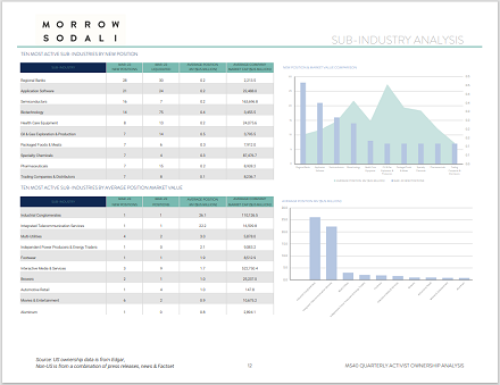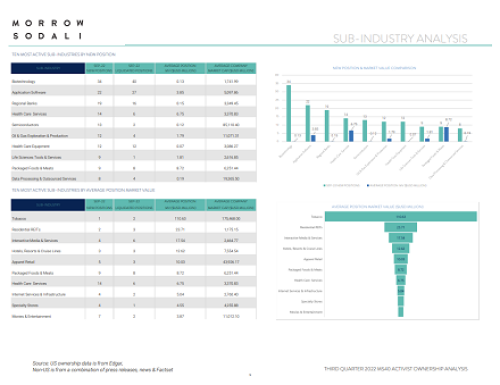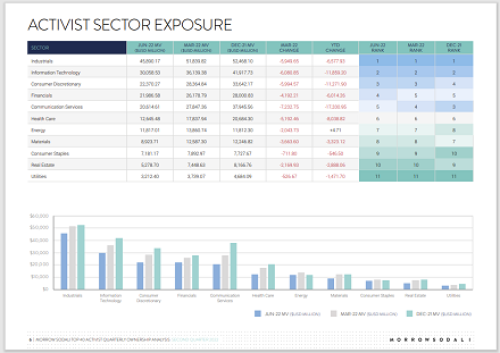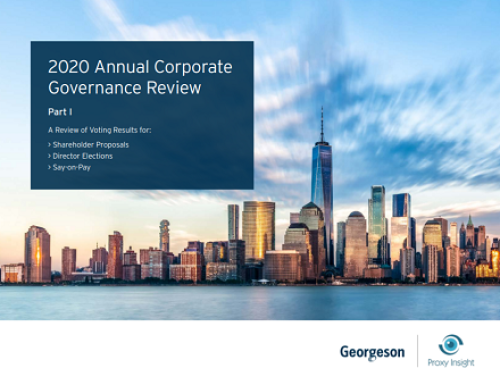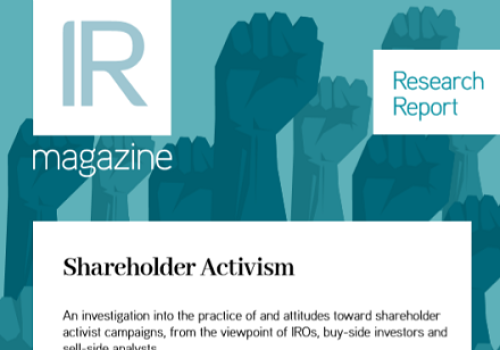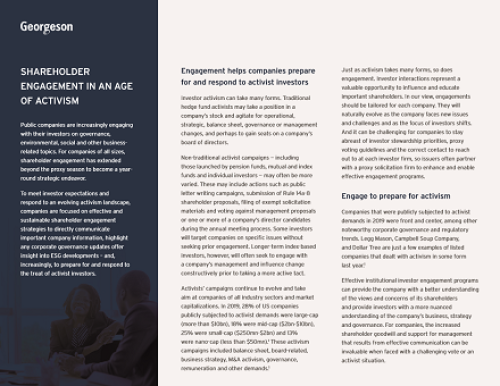As activist investors become more numerous in reach and sophisticated in approach, European corporates are struggling to deal with activist tactics.
This is the clear message from a new study by consulting company AlixPartners, which surveyed senior executives at more than 500 publicly traded companies in the UK, France, Germany and Italy showing how vulnerable corporate Europe feels.
Out of these, a mere 10 percent of company executives polled say they could face their foes successfully, while 53 percent admit they lack any sort of plan and almost 70 percent of senior executives report concern about the rise of activism overall.
The lack of any strategy by corporates towards activists is summed-up in the report by one senior executive, who says: ‘Boards should have a policy, a strategy, but many – us included – just don’t.’
Indeed, as a result, 57 percent of all respondents believe that they will need to look to third-party support when managing activism.
One of the perceived major barriers identified to an increased preparedness by corporates is cost.
According to another executive quoted in the report: ‘When you formalize [an activism strategy], it means you immediately need to start baking things into plans that have cost and margin implications. In fact, even the process of understanding the implications brings cost.’
And with the majority of company executives citing an increased concern about the rise of the activist threat, many point to changes that facilitate the greater impact of activist approaches. The main enabling force here is that of technology.
Two executive respondents cited in the report sum this up. The first says: ‘Things have changed. To some degree it has crept up on us. These days it is easier to stir up activism. Like-minded groups are instantly connected and able to mobilize.’
The second states: ‘For a long time we could size the threat. We knew when and where it was coming from. Technology has changed that.’
The issues around size no longer being an obstacle is evident among US activists, who have built confidence and are no longer put off by a company’s size.
A case in point is Daniel Loeb’s $14 bn Third Point, which has been pushing Swiss food giant Nestle, valued at roughly $237 bn, to sell non-core units.
Eric Benedict, managing director and UK local market leader for AlixPartners, says in a statement: ‘While public companies recognize that activism is on the rise, there is a lack of clarity as to the pre-emptive steps they should be taking to protect themselves. The fact that so many are uncertain as to how to prepare means the door is increasingly ajar for activist entry.’
According to AlixPartners, activists consistently target ‘The 5Cs’ – all of which are in the board’s control and ‘must form’ an integral part of an organization’s day-to-day agenda.
These are:
Core versus non-core: What is the company’s core business and what can be disposed of to return value and improve focus?
Cost savings: Improving Ebitda – a measure of a company’s operating performance – by unlocking value across the business and supply chain
Cashflow: Liberating cash via working capital and more efficient capital expenditure
Capital structure: Can the company identify structures to return value and fund improvement?
Corporate governance: Is the board fit for purpose and adding optimum value?
Companies therefore need to be evaluating these areas on a constant basis, not simply as a response, notes the research. ‘This has to be done dispassionately and with a critical mindset, acting upon any shortcomings to ensure that they are activist prepared,’ notes the report.


